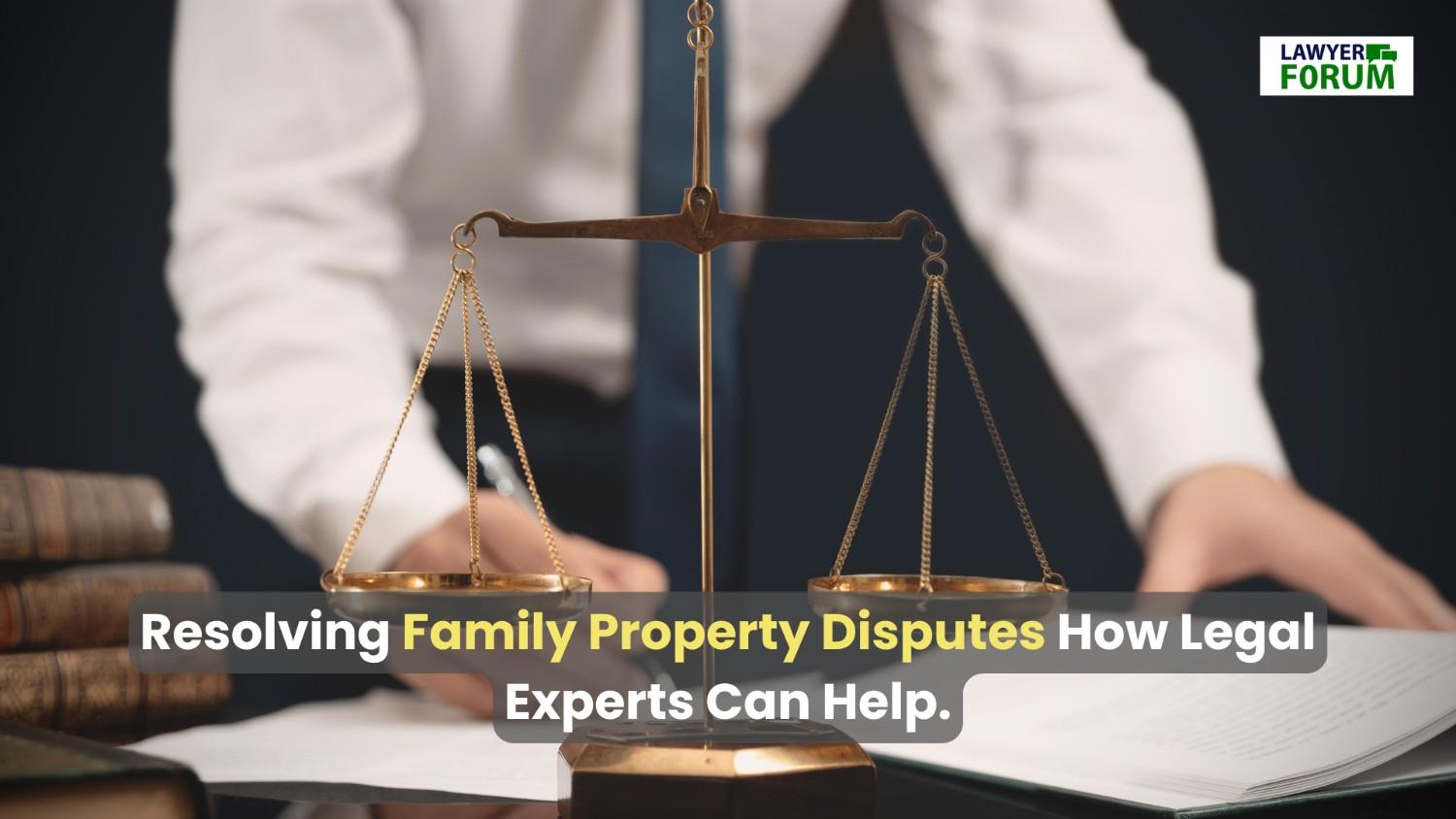· Property Disputes · 5 min read
Resolving Family Property Disputes: How Legal Experts Can Help
Family property disputes can be emotionally and legally complex, often stemming from miscommunication or unclear documentation. This guide explores common causes and legal strategies for resolving these issues, highlighting the role of legal experts in ensuring fair and amicable solutions.

Family property disputes can be emotionally taxing and legally complex, often stemming from miscommunication, ambiguous documentation, or differing perspectives. These disputes arise in various contexts, including inheritance disagreements, jointly owned properties, and divorce settlements. Legal experts play a critical role in navigating these challenges, ensuring fairness, transparency, and amicable resolutions.
Introduction to Family Property Disputes
Family property disputes occur when disagreements arise over the ownership, management, or distribution of assets among family members. Understanding the causes and scenarios is crucial for effective resolution.
Causes of Family Property Disputes
Family property disputes often arise due to several overlapping causes. By understanding these root issues, individuals can take preventive measures or address them more effectively.
Miscommunication Among Family Members
A lack of clear communication often leads to misunderstandings about property rights and responsibilities. When family members fail to discuss intentions, expectations, or agreements openly, disputes can escalate quickly. For instance, one sibling might assume they have a larger share of a family property, while another believes in equal division.
Ambiguities in Legal Documentation
Unclear or incomplete legal documents, such as wills or property deeds, are a significant source of conflict. Missing clauses, outdated terms, or contradictory provisions can create confusion and contention. These ambiguities often require legal intervention to interpret and resolve fairly.
Differing Perspectives on Property Usage
Family members often have contrasting views on how a property should be utilized. Some may wish to retain it as a family home, while others may prefer to sell it for financial gain. Such differing objectives can make it challenging to reach a consensus.
Common Scenarios in Family Property Disputes
Disputes over family property manifest in various forms. Recognizing these scenarios helps families anticipate potential challenges and seek appropriate legal advice.
Inheritance Disputes
When a loved one passes away, disagreements over the distribution of assets can surface. Inheritance disputes are especially common when a will is absent, unclear, or perceived as unfair by one or more parties.
Jointly Owned Properties
Properties owned jointly by siblings, cousins, or extended family members often lead to conflicts. Issues may arise over maintenance costs, usage rights, or decisions to sell or lease the property.
Divorce and Property Division
Marital separations introduce unique challenges in dividing jointly owned assets, especially when family properties are involved. Legal experts help navigate this process, ensuring compliance with divorce laws and protecting each party’s rights.
The Role of Legal Experts in Resolving Disputes
Legal experts play a pivotal role in guiding families through property disputes. Their expertise ensures that emotional tensions do not cloud rational decision-making.
Why Seek Legal Advice for Family Property Issues?
Legal advice is invaluable in ensuring disputes are resolved fairly and efficiently. With professional guidance, families can explore solutions that respect legal frameworks while preserving relationships.
Benefits of Professional Mediation
Mediation offers a neutral platform for conflicting parties to communicate and negotiate. Mediators facilitate constructive discussions, helping families find mutually agreeable solutions without resorting to litigation.
Ensuring Fairness and Transparency
Legal professionals act as impartial advisors, ensuring that decisions are based on facts and legal principles. This transparency helps prevent accusations of favoritism or manipulation.
Types of Legal Assistance Available
Mediation Services: Encouraging open dialogue and consensus-building among family members.
Litigation Support: Representing clients in court when amicable resolutions are not possible.
Drafting Agreements: Crafting clear, enforceable agreements that outline property terms and conditions.
Steps to Resolve Family Property Disputes
Resolving disputes requires a systematic approach that balances emotional sensitivities and legal complexities.
Initial Assessment and Documentation
The first step involves gathering all relevant records, such as property deeds, wills, or previous agreements. Understanding family dynamics is equally important to identify underlying tensions or grievances.
Mediation and Negotiation
Mediation focuses on finding common ground while addressing each party’s concerns. Through open communication, families can avoid escalation and reach compromises.
Legal Action as a Last Resort
If mediation fails, litigation may become necessary. In such cases, selecting the right legal representation ensures that proceedings are handled professionally and justly.
Challenges in Resolving Family Property Disputes
While legal assistance can simplify the process, certain challenges persist.
Emotional Strain on Family Relationships
Property disputes can strain even the strongest family bonds. Managing these emotions is essential to prevent long-term fallout.
Complexities of Legal Procedures
Navigating the legal system can be daunting without professional help. Legal experts simplify these processes, making them less overwhelming.
Cost Implications of Legal Proceedings
Legal proceedings can be costly, especially if disputes escalate to court. Exploring alternative solutions, like mediation, can help minimize expenses.
How Legal Experts Ensure Successful Resolution
Legal professionals employ a range of strategies to ensure disputes are resolved amicably and efficiently.
Strategies Used by Mediators
Experienced mediators employ communication techniques that foster understanding and cooperation among family members.
Providing Impartial Guidance
Legal experts remain neutral, offering advice that prioritizes fairness and legal accuracy.
Preventing Future Disputes
By drafting clear agreements and updating legal documentation, experts help families avoid future conflicts.
Conclusion
Resolving family property disputes is a challenging yet essential process that ensures fairness and maintains familial harmony. Legal experts provide invaluable assistance by offering impartial guidance, simplifying legal complexities, and facilitating amicable resolutions. With professional support, families can navigate these disputes effectively, preserving relationships and achieving equitable outcomes.
FAQs on Resolving Family Property Disputes
What are the common causes of family property disputes?
Miscommunication, unclear legal documentation, and differing views on property usage often lead to disputes.How can legal experts mediate effectively in disputes?
Legal experts facilitate open communication, ensuring fair and transparent discussions.What happens if family members refuse to cooperate?
If cooperation is not possible, litigation may be necessary to resolve the issue.How long does it typically take to resolve these disputes?
The duration depends on the complexity of the case and the willingness of parties to cooperate.Are there affordable options for legal assistance?
Mediation and alternative dispute resolution methods are often more cost-effective than litigation.Can legal experts prevent future family property disputes?
Yes, by drafting clear agreements and updating legal documents, they help mitigate future conflicts.


.B3pekJJB.jpg)
.B-EexUpV.jpeg)